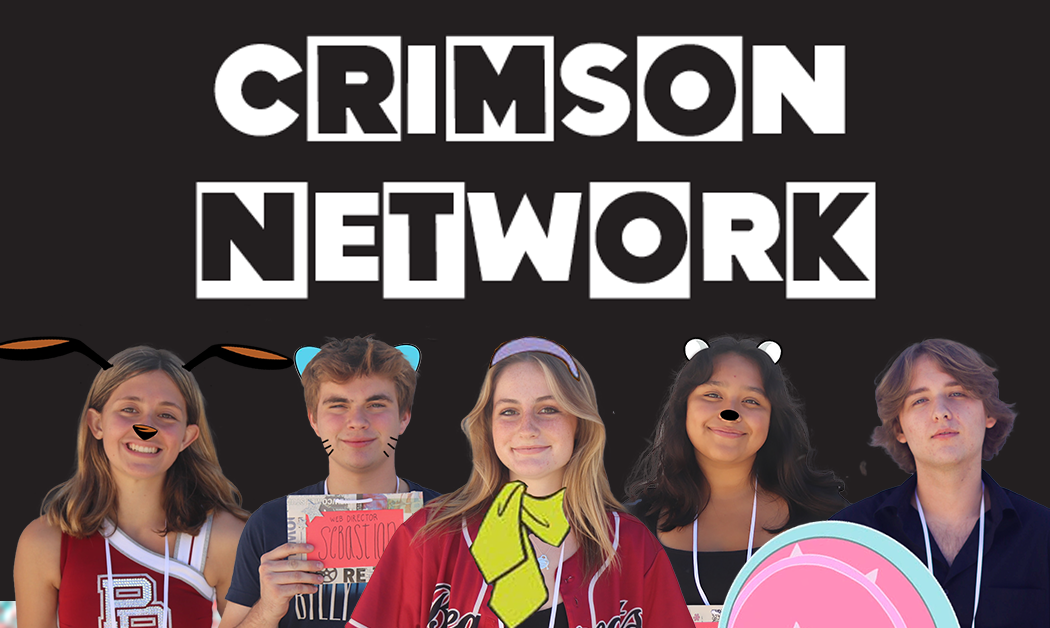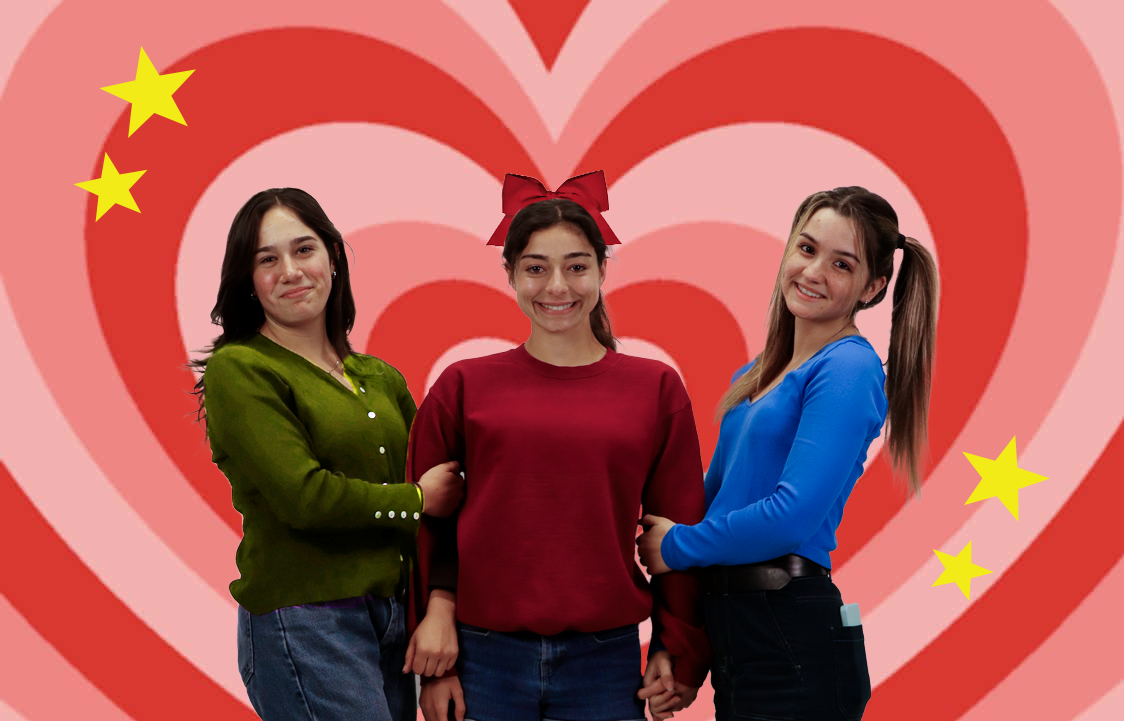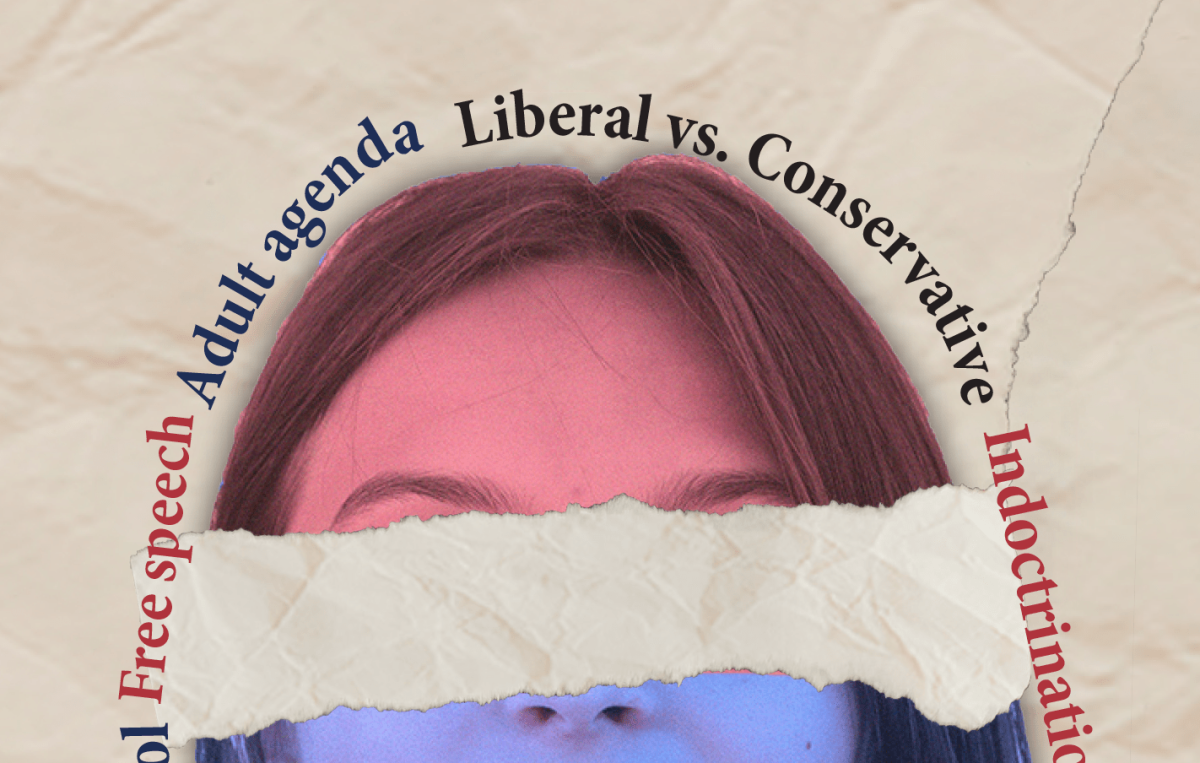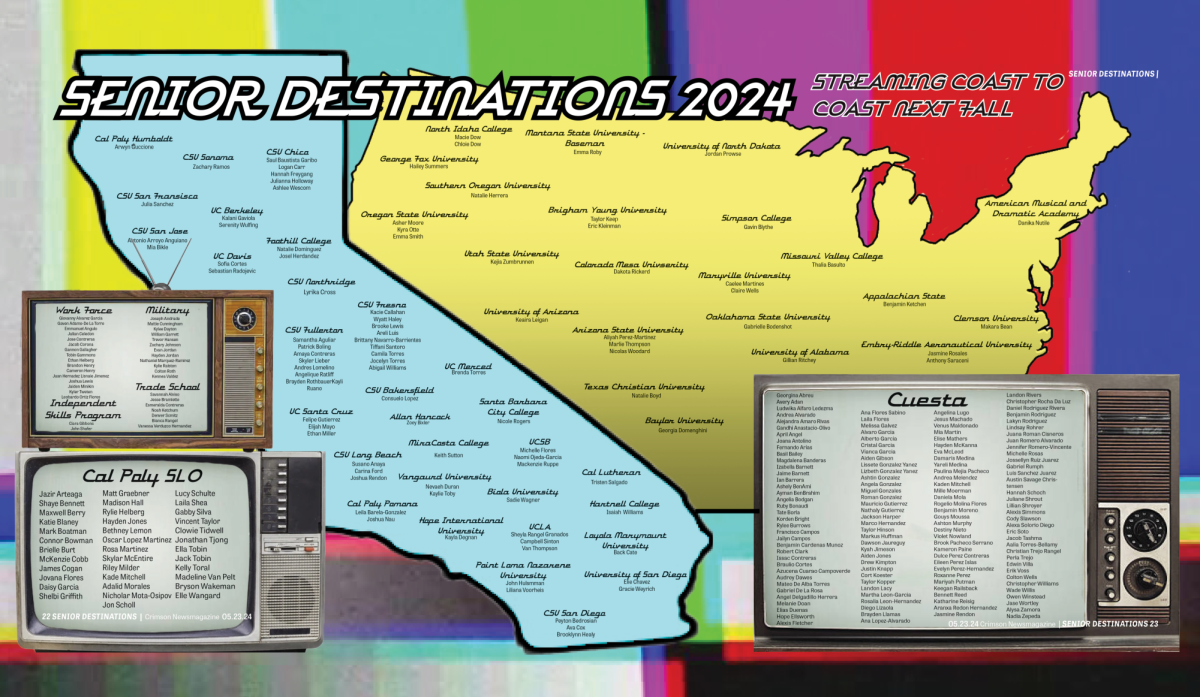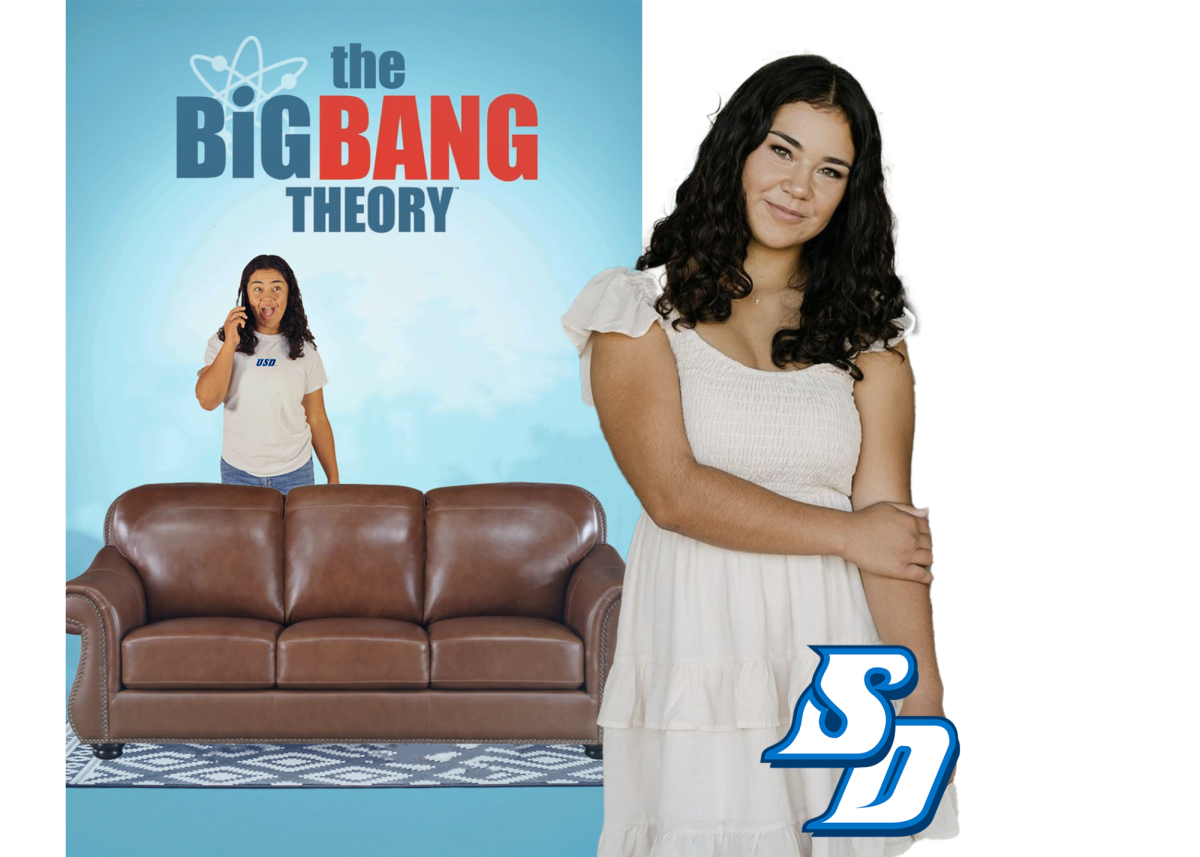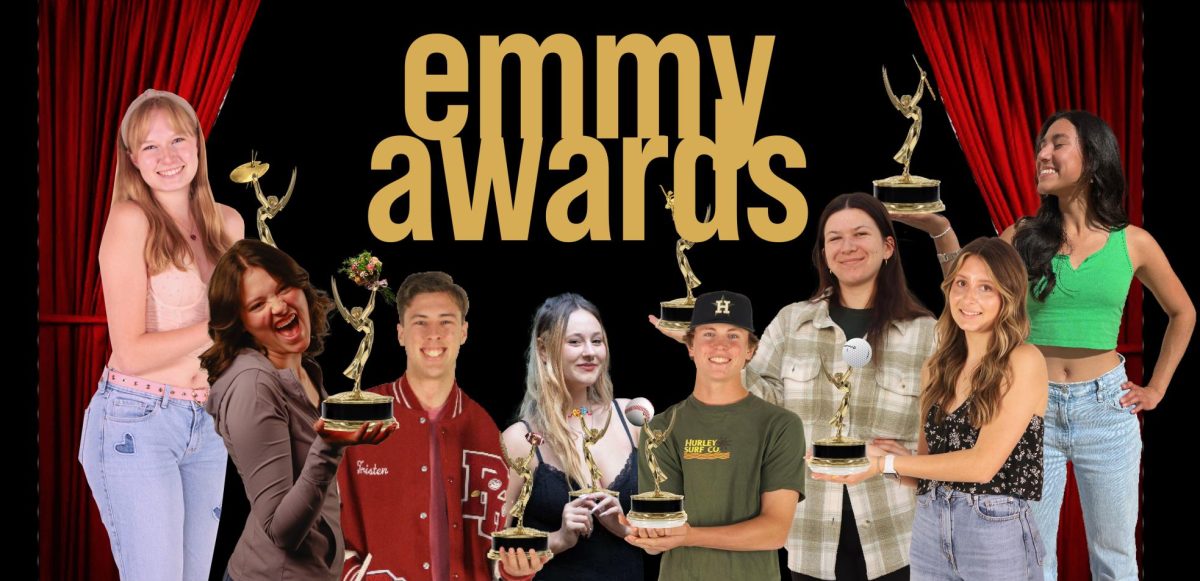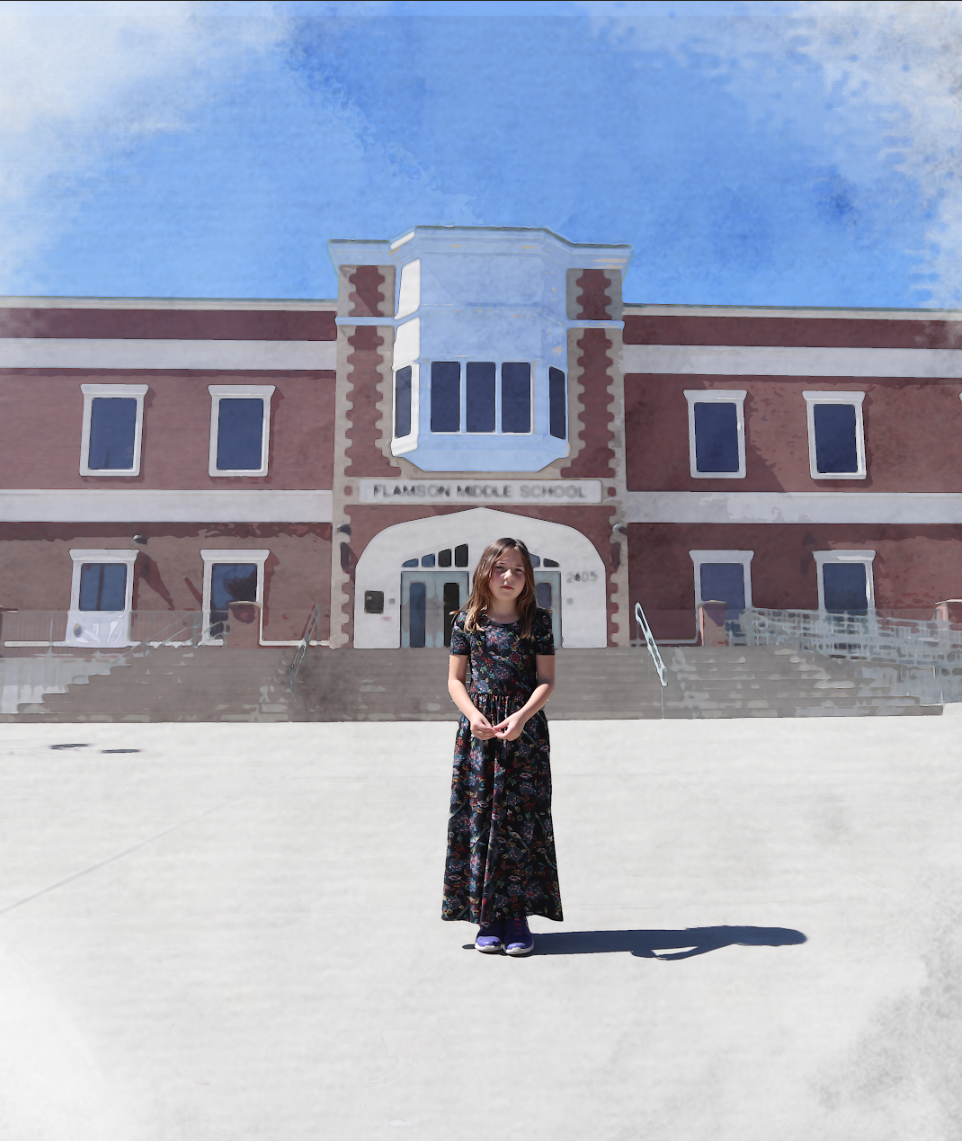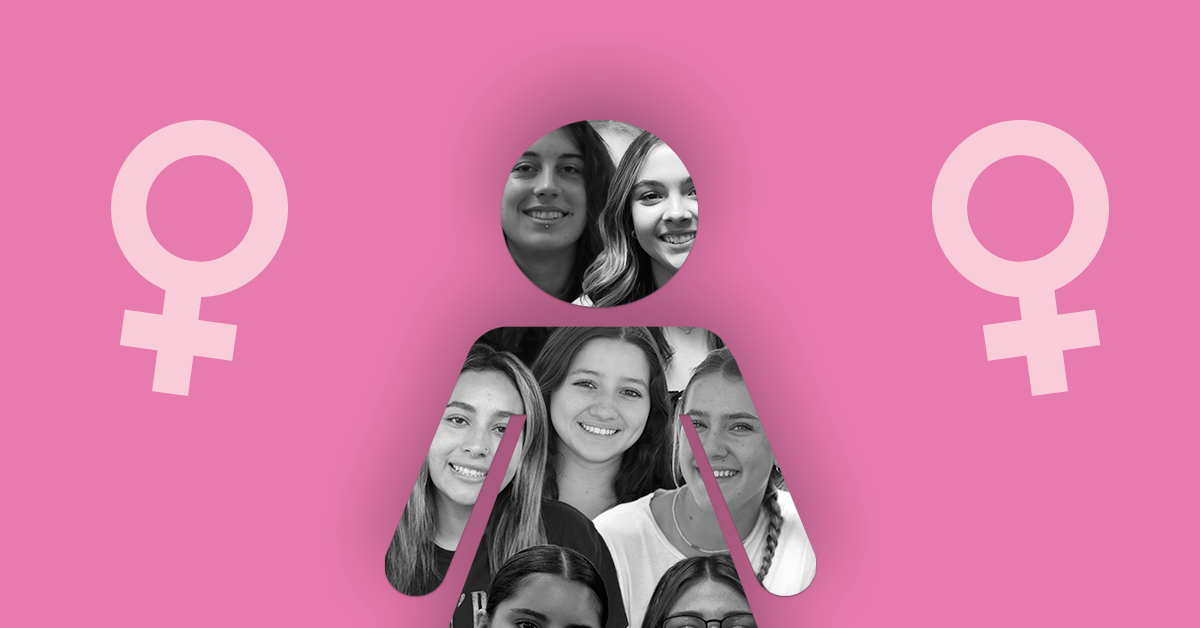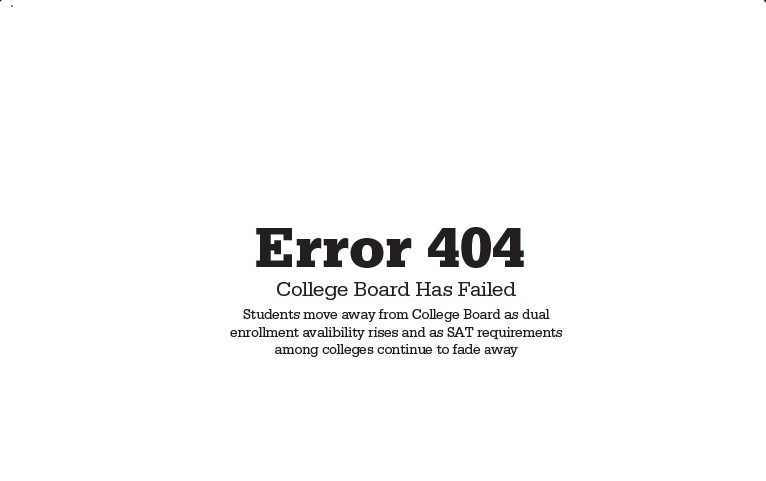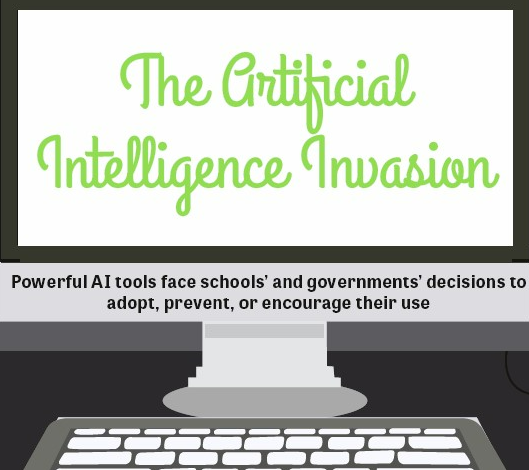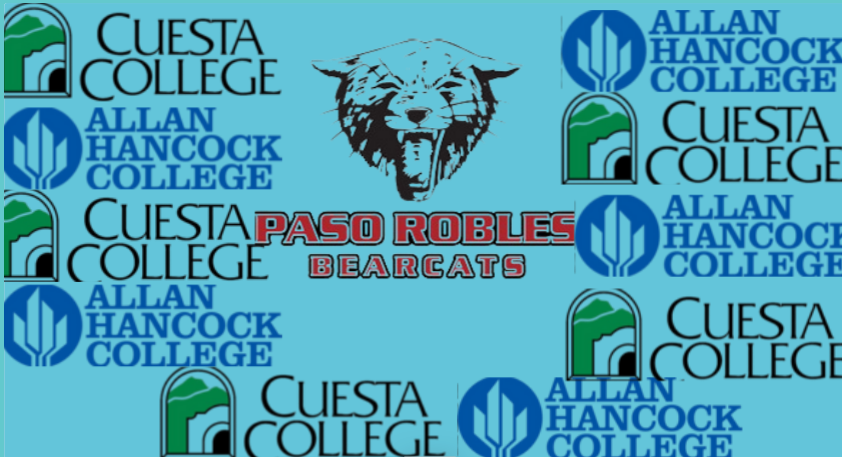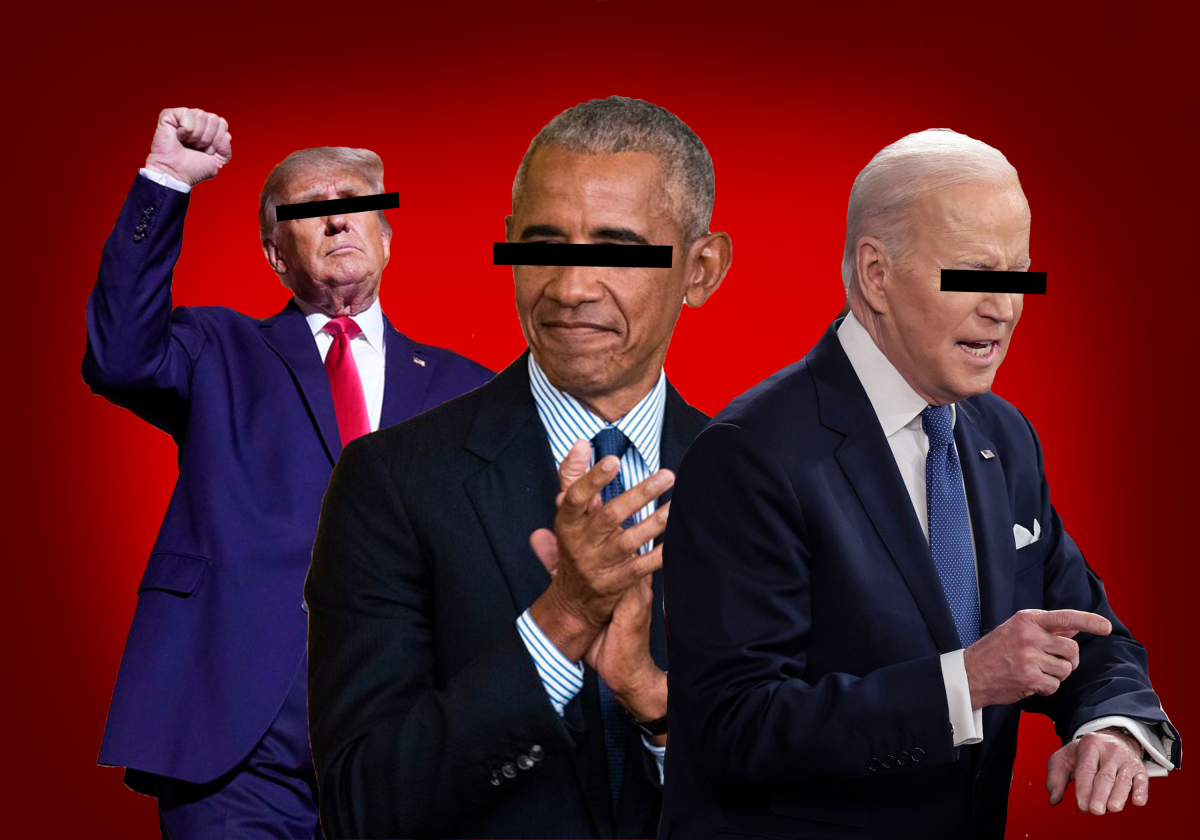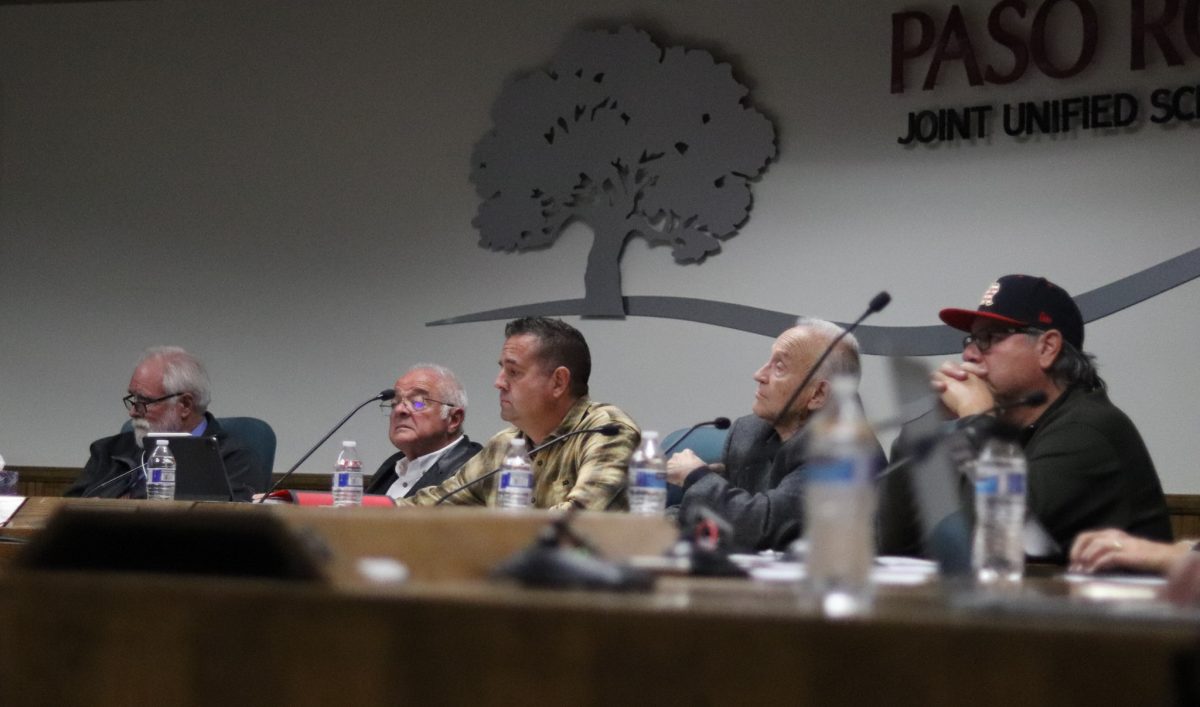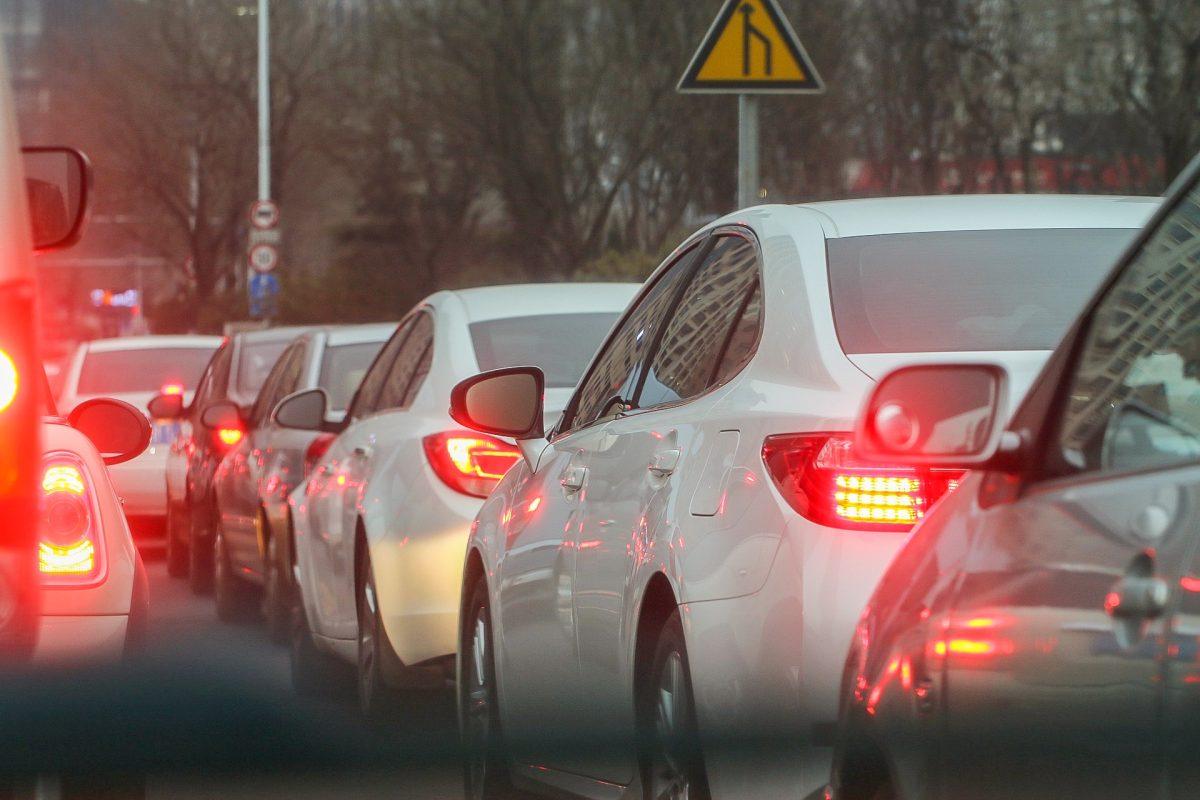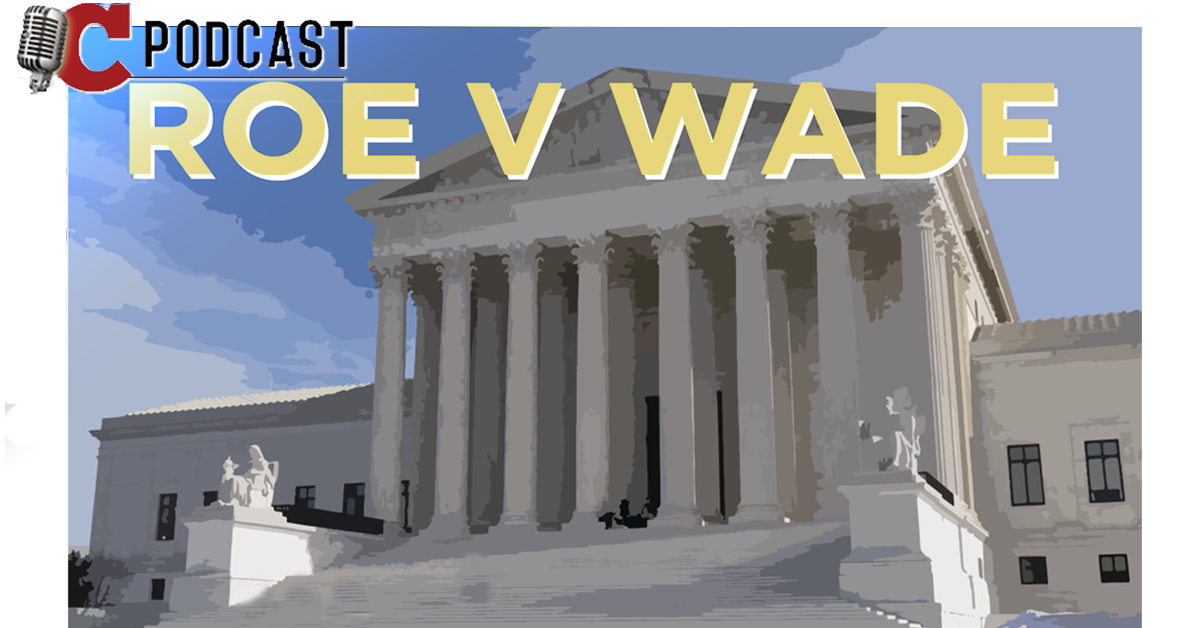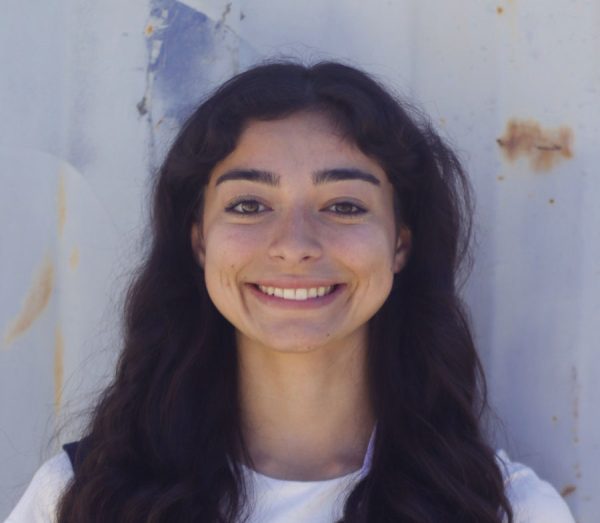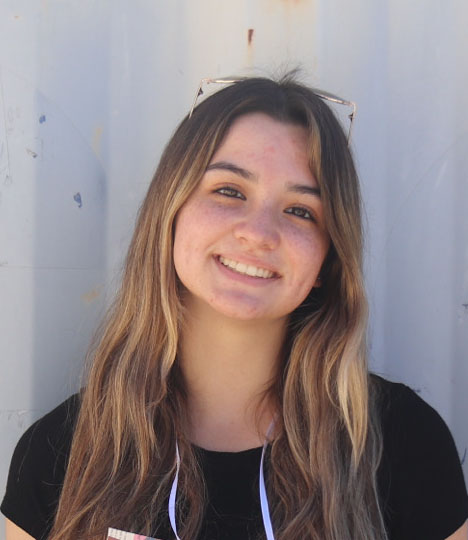
Recent over-politicized events affect students, staff, and community members alike
by Elise Mathers, NEWS DIRECTOR
Individuality; the quality or character of a particular person or thing that distinguishes them from others of the same kind, especially when strongly marked. In our school district, the individuality of administrators, teachers, and students is something that can be entrusted to maintain diversity. While the ideologies of an individual integrate themselves consistently into day to day life, it is becoming more apparent that a lack of non-partisanism is the cause for pressure and division between the different parties that form the district of excellence.
PRHS students are expressing strong feelings of division from those who have authority over them. 90% of 86 students who participated in a survey expressed that they felt political issues were leaking more and more into the campus climate. Additionally, 46% of the surveyed students feel that adults are the ones pushing these political agendas. The role of teachers is causing concern, especially with the awareness students have of their teachers’ personal ideologies. 33% of students shared that they are fully aware of their teachers’ political views, with an additional 41% expressing that they are somewhere in the middle. 40% shared that they believe teachers should not be allowed to share their political views in the classroom setting, with an additional 33% in the middle.
Students are becoming more and more aware of certain issues being dealt with on our campus, and are taking the issues as an opportunity to have their voices heard more than ever. Recent issues have overwhelmed the board with phone calls, emails, and decisions in a way many trustees express they’ve never seen before.
With school board elections on the horizon, several trustees express hope for a change in the dynamic of the district, aligning with the desire of those who participated in the survey. Our school district is full of varying beliefs, opinions, and identities; yet the desire for a feeling of unity remains common among all parties.

Individual ideologies integrate themselves into day to day life, with a lack of non-partisanism causing for pressure and division between the parties in PRJUSD
by Elise Mathers, NEWS DIRECTOR
Recently, heavily controversial issues have been presented to the PRHS school board including critical race theory, mask mandates, and most recently LGBTQ+ rights. All of them affect student life, morale, and educational freedom. School board meetings that used to solely consist of the trustees themselves, and perhaps a few curious individuals, are now forcing attendants to stand in the back of the room – even outside – due to a growing attendance, scrutiny, and outrage. The meetings have become an outlet for students, teachers, and parents from all sides of controversy to have their voices heard in regards to the issues presented. It is not clear whether the board listens to public comments.
In contrast, students appear to be increasingly aware. In a survey of 86 students, 85% expressed that they were at least somewhat aware of current issues being discussed within the school district. Among those surveyed, 90% expressed that they felt political issues were leaking more and more into the climate of PRHS.
Several local newspapers including the SLO Tribune, Paso Robles Daily News, and Paso Robles Press have been producing varieties of headlines in relation to the PRHS school board inordinately compared to years prior. Most recent coverage has been the result of a resolution made regarding the use of traditionally gendered language on PRJUSD campuses. The resolution, 23-02 “Resolution No. 23-02 Regarding the Use of Traditional Titles” was passed in a 4-3 vote as of August 24. This resolution states that PRJUSD “will not support any mandate which replaces traditional gender-specific names such as mother and father, Mr. and Mrs., ladies and gentlemen, and boys and girls.” The passing of this caused confusion as in the meeting prior, the trustees were discussing making updates to a nondiscrimination policy that was sparking concern among parents. The original policy, passed in 2020, gave specific protection to LGBTQ titles. The proposal for revision, would remove the specifications for LGBTQ titles, but the policy would remain the same. Passing 23-02 was not related to the nondiscrimination policy discussed in previous weeks; it was a response to a possible mandate being discussed by the NEA (National Education Association).

“Some of the board did feel like this was something that they wanted to say that should a mandate come down,” said Nathan Williams, who has been a trustee for two years. “I voted against that because there is no mandate coming and there is no mandate that exists. It’s just talk. If we react every time somebody talks about something, we’re distracting ourselves,” said Williams. Williams’ own view was that the resolution be combined with the nondiscrimination policy, and there would be no support of any mandate that removes titles for all groups.

Inequality in the area of racial discrimination has been another reason for debate at PRHS, especially relating to the recent revival of an Ethnic Studies course. The course, created by PRHS teacher Geoffrey Land was approved with resolution 21-27. Though Land was a two-time teacher of the year, the board narrowly approved the course, demanding right leaning content be included if students were to receive their approval.
Critical Race Theory was a special lightning rod drawing state and national attention to political divide in Paso Robles. Passed in a 4-3 vote, the CRT resolution stated that CRT is “an ideology based on false assumptions about the USA and its population,” and “a divisive ideology that assigns moral fault to individuals solely on the basis of an individual’s race, assigns generational guilt and racial guilt for conduct and policies that are long in the past, and violates the fundamental principle of equal protection under the law.”
Critics of the board’s resolution felt that the board was meddling with teachers’ content and with students’ experience. School board president Chris Arend led the campaign against teaching of CRT at PRHS. “That really is an ideological conflict we’ve got going on in this country. You got the concept of dialectic splitting society into two groups and then trying to analyze that,” said Arend, who gave a lecture about CRT at PRHS in early April. “Teachers and the curriculum should take a balanced approach and show both sides of the issue. People should also participate in exercise and better tolerance and civil discourse.” During the weeks of the CRT resolution, it was not clear that teachers had been guilty of intolerant or imbalanced lessons.

Critics of the board’s resolution felt that the board was meddling with teachers’ content and with students’ experience. School board president Chris Arend led the campaign against teaching of CRT at PRHS. “That really is an ideological conflict we’ve got going on in this country. You got the concept of dialectic splitting society into two groups and then trying to analyze that,” said Arend, who gave a lecture about CRT at PRHS in early April. “Teachers and the curriculum should take a balanced approach and show both sides of the issue. People should also participate in exercise and better tolerance and civil discourse.” During the weeks of the CRT resolution, it was not clear that teachers had been guilty of intolerant or imbalanced lessons.
The recurring political controversies within PRHS have become more consistent, as well as divisive, to students and board trustees. “There is a line between politics and human decency, and I believe in our school district, community, and world this line has been blurred. There is a divide in which many students feel they must stay true to a certain side no matter the cause or situation at hand,” senior Amani Arellano said. Arellano is Senior Class President and one of many who sense political division.
“I feel that things I love are often labeled to a certain political side and ruined by judgment. Ideals that should be a matter of civility are automatically split between an instinctive question of ‘Is that my side or theirs?’ It results in a political distraction and automatic division between students who all have so much to offer to one another.”

Amani Arellano
Senior Class President
Trustees on the board know of the partisan divides. Teacher for 36 years and board trustee for 12, Tim Gearhart believes that the sense of division stems from certain trustees using their positions to push personal political ideologies. “There are four people on the board who are basically not there to service the needs of the school,” said Gearhart. “They’re there to promote a political agenda. And what that means is: everything else goes by the wayside.”
Trustee Dorian Baker has been a board member for 2 years, and involved in education for over 30. Baker’s view is that a political divide on campus is caused by a lack of well grounded communication skills. “I think that it goes back to people not being taught how to have a conversation, not being taught how to critically think and have had a conversation with someone with a different viewpoint. People used to be able to do that. Now, it seems like you just elevate your voice and yell at each other.” Baker expresses that she doesn’t want students to feel divided from the school board. “I’m saddened to think that we have so many students that feel like the school board is somehow against them. That’s heartbreaking. What I want is for people to know that we are for education, we are for families, we are for unity – and not for political divisions.”
Statements by quoted individuals are not reflective of the opinion of Crimson Newsmagazine. We strive to tell all sides of the story through several interviews. Quotes presented above are representative of solely the experiences and opinions of the quoted individual.

A look into parent, board, and teacher influence and their effects on student separation
by Kylie Troy, World Editor
Last September, a freshman dropped her books as they walked through the quad. Rather than focusing on the instinct to help, the bystanders of all grade levels didn’t lift a foot, but instead lifted their fingers to point and laugh. With a face sunken to the ground, she picked up the fallen items with no one to save her from the embarrassment.
The vignette is just an example of the prejudgement that is becoming more prominent in schools; showing the prejudice and the separation that students come to see as a result of peer, parent, and political opinions/pressures. Nearly 90% of students surveyed feel that liberal or conservative ideas have been leaking into schools through peers. The bleed of politics can be traced back to the classroom as well, as students say they already know where their teachers stand, creating an environment where they are uncomfortable sharing their general, or political beliefs. The important idea that teachers should keep a professional and non-opinion based teaching style prevents the influence of pressure on students as their minds grow and develop on presented beliefs.

But with a change in times, this is not always the case. The trickling effect from the classroom, pulls the minds of students in every direction with no middle ground, forcing the student to choose sides rather than allowing school to be an environment where they can appreciate and respect those who may not agree with them. Opinions that are able to be drawn through conversation, are now being replaced with immediate bias that is connected to associations and viewpoints.

One anonymous student spoke about their experience with politics in school: “You won’t even look at each other without there being weird looks, as if they are thinking you’re so gross, ” referring to the judgment of beliefs.
50% of students surveyed agreed that political beliefs sometimes or even always affect their friendships. Are they to blame? While only the facts should be displayed, allowing students to do the job of deciphering the information that leads to forming their own opinion, teachers are seen nudging discussions toward their own opinion. Peers, board members, and parent decisions are proven to apply severe pressure, as 91% of students in the survey claimed; they were either severely pressured politically by adults in their life or other students. A student surveyed about their opinion claimed that their own teachers seem to be either far right or left, with no inbetween seen.
Through adult influence, students formulate an idea of ‘normal’ and fear the consequences of being an ally with those who are different from that of the masses’ ideas. Threatened by the differences of ideas that are inherently associated with liberal or conservative parties, negativity arises. It is seen that even the way a student dresses can associate themselves with beliefs that are imprinted in student minds as either negative or positive, forming an opinion of a person that cannot be accurate at this first glance. The developing minds of students fluctuate, but with growing implementation of teachers and adult opinions and influences in and out of the classroom, is creating an environment where the students cannot have a non-prejudiced school.
Students have become “more separated than ever,” from peers or even teachers, and the sense of family is “tearing apart, ” according to board member, Dorian Baker.
Between board policies of gender language, LGBTQIA hate, and the act of joining clubs, parental pressures also continue to conform to students’ perspectives. One student in our survey explained that they have to bustle between board policies and parental pressures to conform. The student explained that though they tend to lean on the liberal side, they also do not want to conform to the majority’s political and moral beliefs. It was clear that students felt surrounded by adult political voices that she strives to go off of what is right rather than the beliefs that are pressured.
In another anonymous interview, a student said that the tense school environment has caused others to “distance themselves,” affecting many friendships because of common misconceptions.
They don’t like me because they think I’m a far right Republican guy. When in reality, I’m not really like that at all.

Anonymous
PRHS Student
He added that this false perception affects his everyday life and that the ideas that form the uniqueness, freedom and individuality are the same that are slowly putting borders between students. They begin to associate certain styles or entire groups with political ideas they agree or disagree with. Students judge people without knowing them, or having conversations to clear the continuous instinct to judge someone at first glance . The prejudice caused by multiple influences blinds students to the reality that the opinions of the people being judged could be completely the opposite, but is plagued by the gathered information that is fed in and out of schools.

What the political future holds for PRHS and All of America
by Kalani Gaviola, EIC
America’s present mirrors its past- and, without intervention, might mirror its future. With us vs. them mentalities polarizing this country just as they did with the founding fathers drafting the Constitution , the 87.8% of PRHS students surveyed who claim political issues have leaked into school, with some even claiming it majorly affects their relationships with staff and peers alike, don’t appear to be a grand set of outliers. Instead, they likely come at a result of the influences of parents, board members, and teachers alike.
Research from Brown University has suggested the United States is dividing more quickly than other democratic countries and, an article from Trends in Cognitive Sciences suggests modern fixtures such as social media like Twitter, Instagram, and Facebook, are “key facilitator(s)” in the political divide could state here the two major sides shift that of the more liberal based and more conservative based.
Nationwide trends show that PRHS isn’t alone in this over-politicization, with a survey reported by US News claiming that political influence in schools is the biggest concern among parents.
Superintendent Curt Dubost recalled his own politically-charged high school experience as the Vietnam War and civil rights issues loomed through his secondary education. He acknowledged seemingly escalated polarization at school, and throughout all of the U.S., due to heavily partisan politics and the difficulty of maintaining a “balancing act.”
Dubost expressed “fear” for the future of the country if it doesn’t right itself, but maintains hope that the high-schooled aged generation “can save us.”
On the one hand, I really want students to be aware of issues, to register to vote and become part of the solution. But at the same time trying to control that so it doesn’t become an all-encompassing issue that gets in the way of everything else we’re supposed to be doing is difficult.
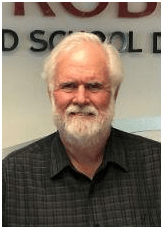
Curt Dubost
PRJUSD Superintendent
To find this solution, the simplest answer seemed to be the most reasonable one for researchers: the contact hypothesis, first organized by psychologist Gordon Allport in the 1950s, suggested that prejudice lessens when people kick down the stereotypes and stop depending on groupings to make choices about others’ character, and ultimately focus on human connection.
And, according to school policy, at PRHS unbiased and safe education for all should take precedence- meaning that attempts to bring purely politically focused issues into school are against school policy and board policy alike, a fact to keep in mind and bring up when necessary.
The new PRJUSD board elections will take place on November 8, and attempts are being made to shift focus onto education and student voice with several community outreach events, including a Meet-In-Greet at Centennial Park on September 25.
While some candidates already have aired political biases through their campaignings, the Meet-In-Greet organizer Elena Garcia told the Paso Robles Press that the event was to facilitate and encourage the election of board members “focused on student success rather than controversial, polarizing topics that are distracting from student welfare and quality education.”
However, heavy influences from adults are not the sole deciders of America’s destiny, as suggested by Dubost.
Gen Z, the generation born from the late 90s to early 2010s , are currently high schoolers, and can help encourage a positive look to the future by simply talking to each other more, participating in unifying school events, letting the contact hypothesis be put to the test. Similarly, an active fight against the negativity bias when interacting with someone that doesn’t completely share one’s views can be helpful and can further humanize them as someone to compromise and share with, not someone to fight.
The fact of polarization doesn’t have to be an acceptance of it. By acknowledging the problem we allow for solutions to be developed. Because while politics may have a place in schools, schools are by definition, places for learning, not places defined by agendas or great division.


